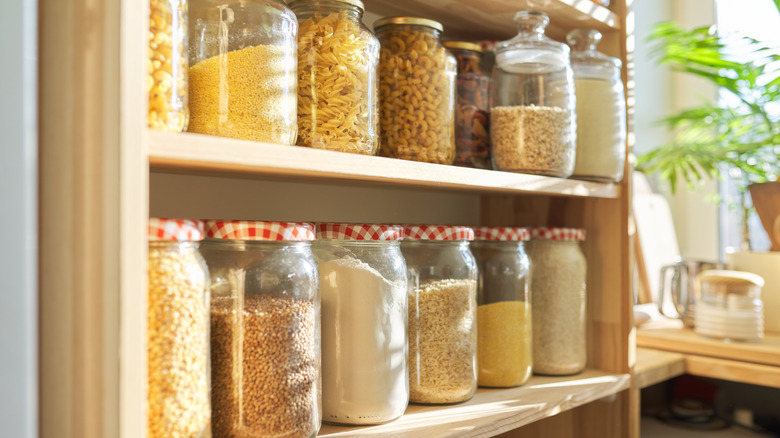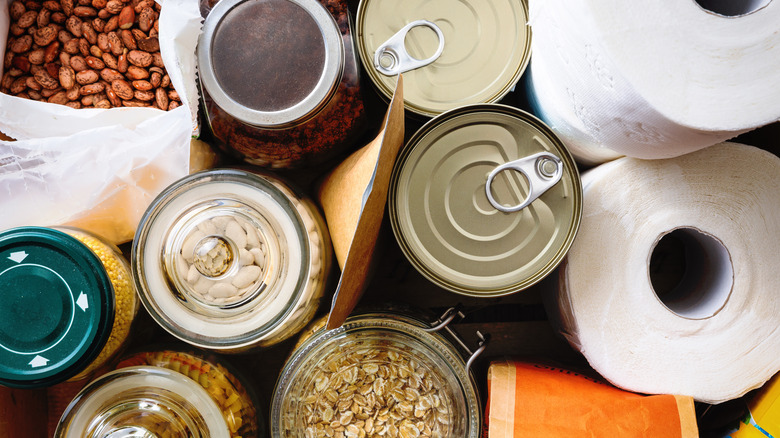These Foods May Be Harboring Mold That You Can't See
In more anxiety-producing news, various pantry staples may be storing mold while sitting on your shelves. Before you stock up on "non-perishable" items, check to make sure these items don't have harmful toxins growing on them.
According to Mindbodygreen, mold comes from moisture, meaning that most wet places contain mold. However, specific types of mold are seriously detrimental to human health. Mycotoxins — or toxins from mold — can trigger inflammatory responses and cause health issues with repeated exposure. However, these types of toxins aren't visible to the naked eye, so you can't do a quick scan to find them. Fortunately, there are ways to avoid accidentally ingesting these microparticles.
Items that stand in your pantry for an extended period of time, like rice and dried fruit, can contain harmful toxins after spending time collecting dust. To avoid mold in your rice, the outlet recommends sticking with organic products as often as possible — these types are less likely to harbor harmful spores. Furthermore, since dried fruit naturally contains moisture, they can quickly grow mold around these pieces. Avoiding this type of fruit as a snack or on your salads may be saving you a dose of mold. Instead, use fresh or frozen options instead of dried apricots, figs and dates.
Processed foods without preservatives have the highest risk of mold growth
There's a reason why so many store-bought foods contain preservatives and stabilizers — to avoid mold growth. Indeed, Eat This reports that items such as juice boxes can contain high amounts of harmful matter because of their lack of preservatives. Many brands have removed the preservatives from their juice box products, leaving them vulnerable to mold growth. A few types of juice companies have started to use a transparent film on the bottom of their pouches so parents can check to see if there's any mold growth inside the container. If you find this as gross as it is, opt for full containers of juice and make sure to drink it within a few days.
Cereals, nuts and processed meats all can harbor mycotoxins as well. Mindbodygreen suggests looking for nuts that have recently been packaged rather than sitting on a shelf for an extended period of time. You can also soak and dehydrate your nuts before ingesting them to break up the damaging compounds before you eat them. As for your meats, salt-cured options help stop the spread of mold, according to the outlet. Plus, choosing grass-fed organic meat can lower these chances as well.
Any product that contains a high level of moisture is at risk for mycotoxins. Finding the freshest products available and opting for organic whenever possible can help.

